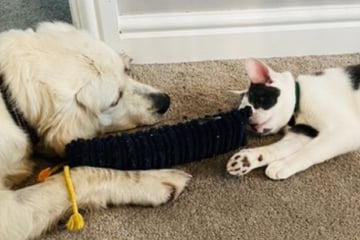Fat Bear Week 2022: Behind the scenes with a Katmai National Park ranger
King Salmon, Alaska - With the latest edition of Fat Bear Week in full flow, Katmai National Park's Lian Law gave TAG24 an exclusive look behind the scenes of a unique competition. Here's everything you've ever wanted to know, from how the corpulent contestants are chosen, get weighed, and the burning question on everyone’s mind: Do bears actually eat honey?
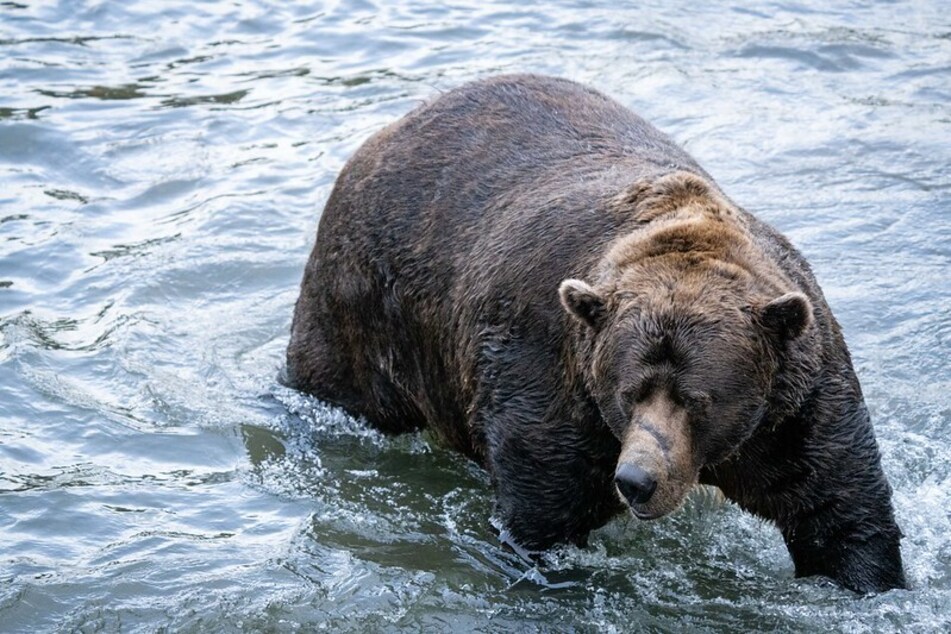
Fat Bear Week 2022 kicked off Wednesday, but you can still vote for your favorite fuzzy beast in the daily head-to-head single elimination battles until Monday. The champion of chub will be crowned on October 11.
Lian Law started working as a seasonal interpretive ranger at Katmai National Park and Preserve in 2017, and she's now in her second year serving as visual information specialist. She gave TAG24 a behind-the-scenes glimpse into the hefty happenings.
Law's love of bears drew her to the position, and her enthusiasm for the animals was apparent throughout the conversation, which started with the question that she gets asked most by kids visiting the park: Why is it called "Fat Bear Week" and isn't that mean?
She has a pretty good answer to that.
"We call Fat Bear Week a celebration, because it is!" Law said with a smile. "It is a competition, too, but mostly a celebration of success for bears getting fat, and for our healthy ecosystem that supports them."
For bears, "being fat is a healthy thing."
Fat Bear Week highlights a beautiful transformation
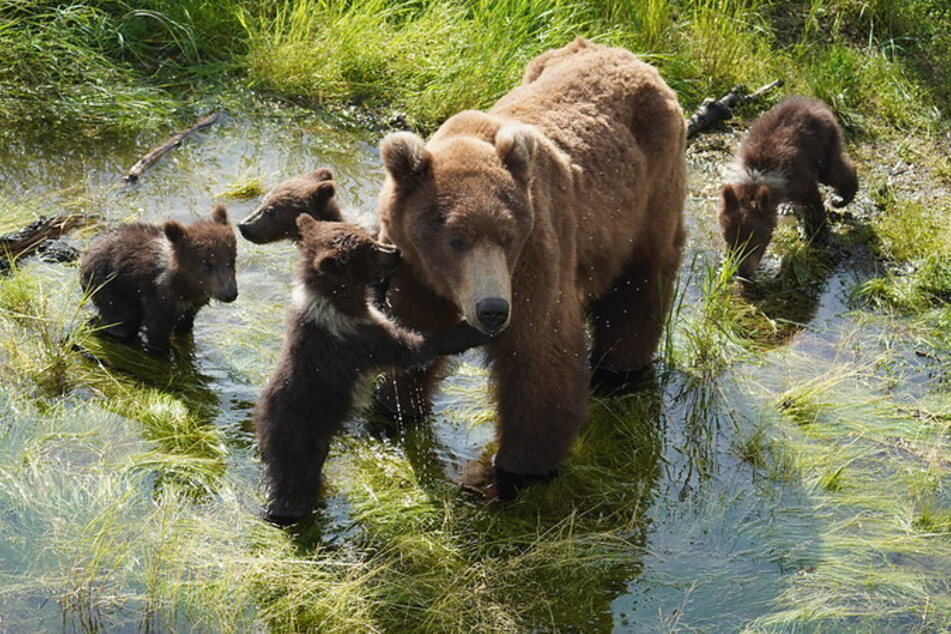
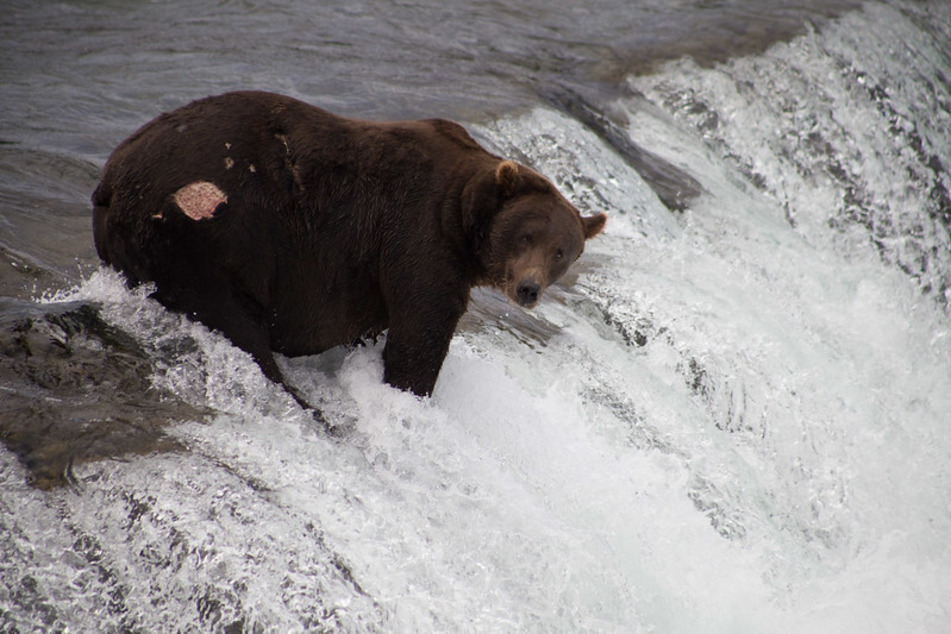
Fat Bear Week was inspired by the remarkable change that bears go through each season before hibernation.
The Brown Bears of Katmai National Park emerge skinny and hungry in the spring. Then, thanks to the runs of sockeye salmon and anything else that seems yummy to their growing tummies, they plump up over the summer and become some of the biggest bears in the world.
Take cubs, for instance. At its birth in the month of February, a cub is about the size and weight of a "soup can," Law explained. By the time it retreats into a den again, it will weigh up to a whopping 80 pounds. That's a humongous proportional gain. Fat Bear Week was created as a way to share the transformation the rangers have the privilege of witnessing with a wider audience, and get people engaged.
Starting out as Fat Bear Tuesday in 2014, it has evolved into a week-long competition, with live chats, and a special "Fat Bear in the Classroom" program for schools. In 2021 the rangers added Fat Bear Junior, giving cubs added recognition for their own amazing pound packing on ability.
Fat Bear Week's massive gain in popularity has brought recognition to Katmai National Park and increased visitation to the area. We're not just talking awareness, but also donations to Katmai Conservatory, which funds the research Law and her colleagues do at the park.
In other words, it's all been a big, fat success! "People are drawn to these animals, they care about them beyond the competition and are invested in their lives and survival," Law told TAG24.
"Conservation always starts with awareness," she added. "When you think of stories of conservation they tend to be a bit darker, and a bit doom and gloom, but here we get to celebrate Katmai."
Fat Bear Week 2022's chonkers are "looking as fat as ever"
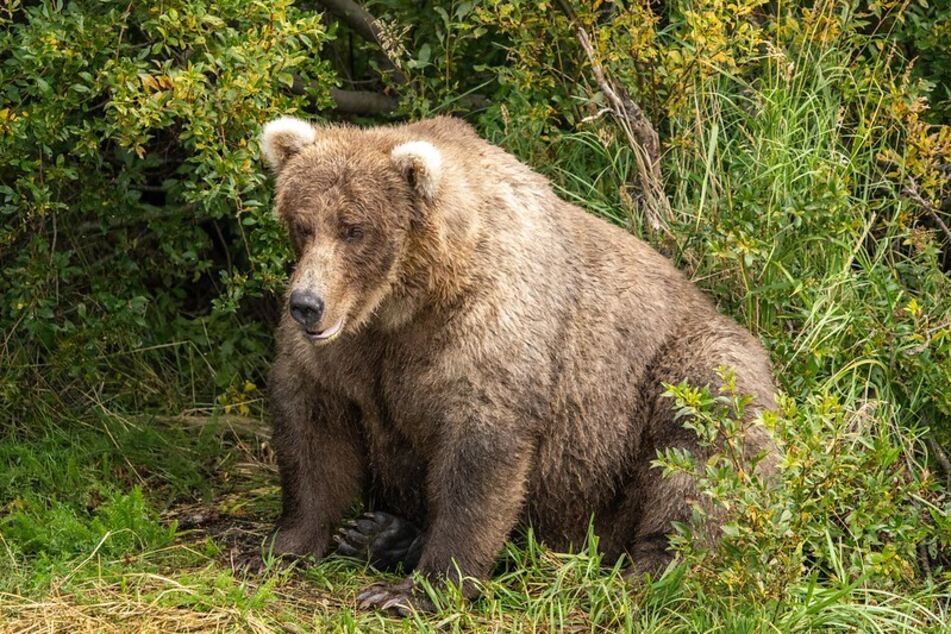
Of course, the competition between the year’s meatiest mammals is still the core of Fat Bear Week. And Law has some good news: "The bears are looking fat as ever. It is gonna be a tough competition!"
A favorite amongst the field is 480 Otis, a four-time champion, but that doesn't mean he's a shoo-in.
"One of the best things about this competition is that it's completely subjective," Law laughed. "There is no wrong way to choose your Fat Bear Champion!"
How the competitors are chosen is a different story, though. "It’s an incredibly hard thing to do," Law said, before launching into the criteria.
"Bears have to be fat, of course, but we also have to see them in early season and late season for comparison." On top of that, the team works hard to include bears of all different groups: males, sows (female bears), with and without cubs, sub-adults, and so on.
To even be in the running, a bear needs to be spotted three times during a monitoring session to get their three-digit ID number. Though some bears have nicknames, most rangers try to avoid naming them so that they can be their best wild selves.
For the same reason, the bears don't actually get weighed. "They are wildlife, they wouldn’t allow it," Law points out. That's where light detection and ranging technology, also known as LiDAR, comes in handy. It scans a bear's body, which can then be used to approximate its weight.
These estimates have proved pretty accurate. Bear 747, also known as Jumbo Jet, weighs somewhere around a whopping 1,400 pounds.
Katmai Ranger's don't have favorite bears
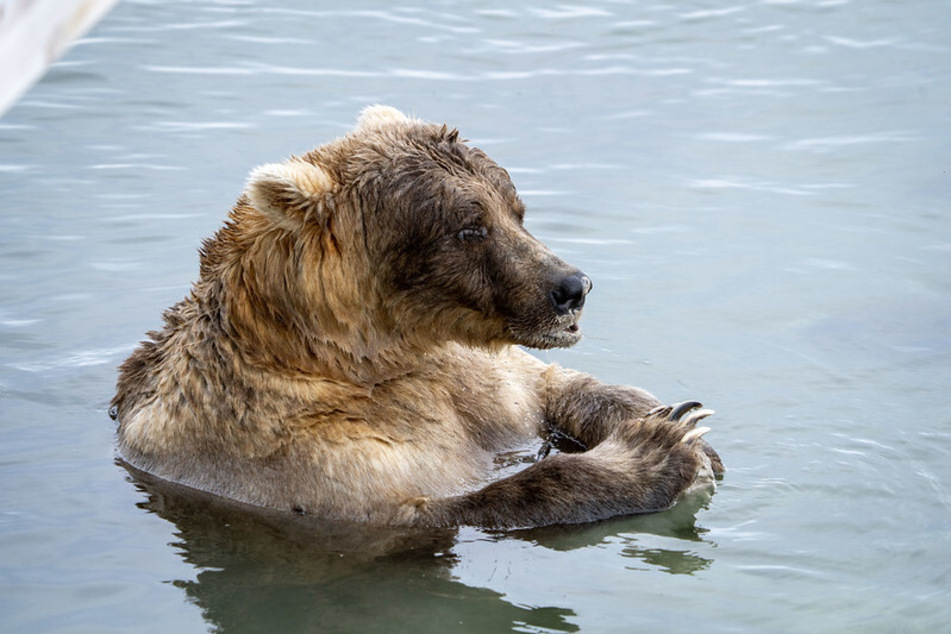
Law smartly dodged a question about her favorite bear, but did admit to being a huge fan of bear 909's one-year-old offspring, as well as bear 910's spring cubs.
The two momma-bears are actually sisters and they play and fish in the same area, which is something rangers haven't seen before. Sows with cubs are usually more protective than social.
But at Brooks River, bears get up close and personal, and even play together.
"Bears will tolerate each other for two reasons and that is for high concentrations of food and potential mating opportunities," Law explained. "How well they are able to do at Brooks River is highly dependent on our salmon run. We are very fortunate that in the last several years our salmon run has been larger than average ... Katmai is home to one of the healthiest runs of salmon on the planet! That is why we have so many bears and why our bears are able to get so large."
Speaking of salmon, Law highlights a very important fact: "We are able to have Fat Bear Week because of the overall health of our ecosystem and the health of the salmon run."
"It's important to remember that not all bears and not all places are as fortunate," she adds. "Through Fat Bear Week, we want people to recognize what is important to them and cherish and conserve that, whether that’s our bears here or something closer to home."
Since we're on the subject of food, we'd be remiss not to ask: do bears actually eat honey?
"Not here in our park at least," Law said with a laugh. "They are opportunistic – and so if there is honey around they would eat it, but our bears are feasting on salmon."
Fat Bear Week 2022 runs until October 11. You can join in on the fat-tastic fun on explorer.org by voting for your favorite bear.
Cover photo: Katmai National Park and Preserve Courtesy L. Law.
